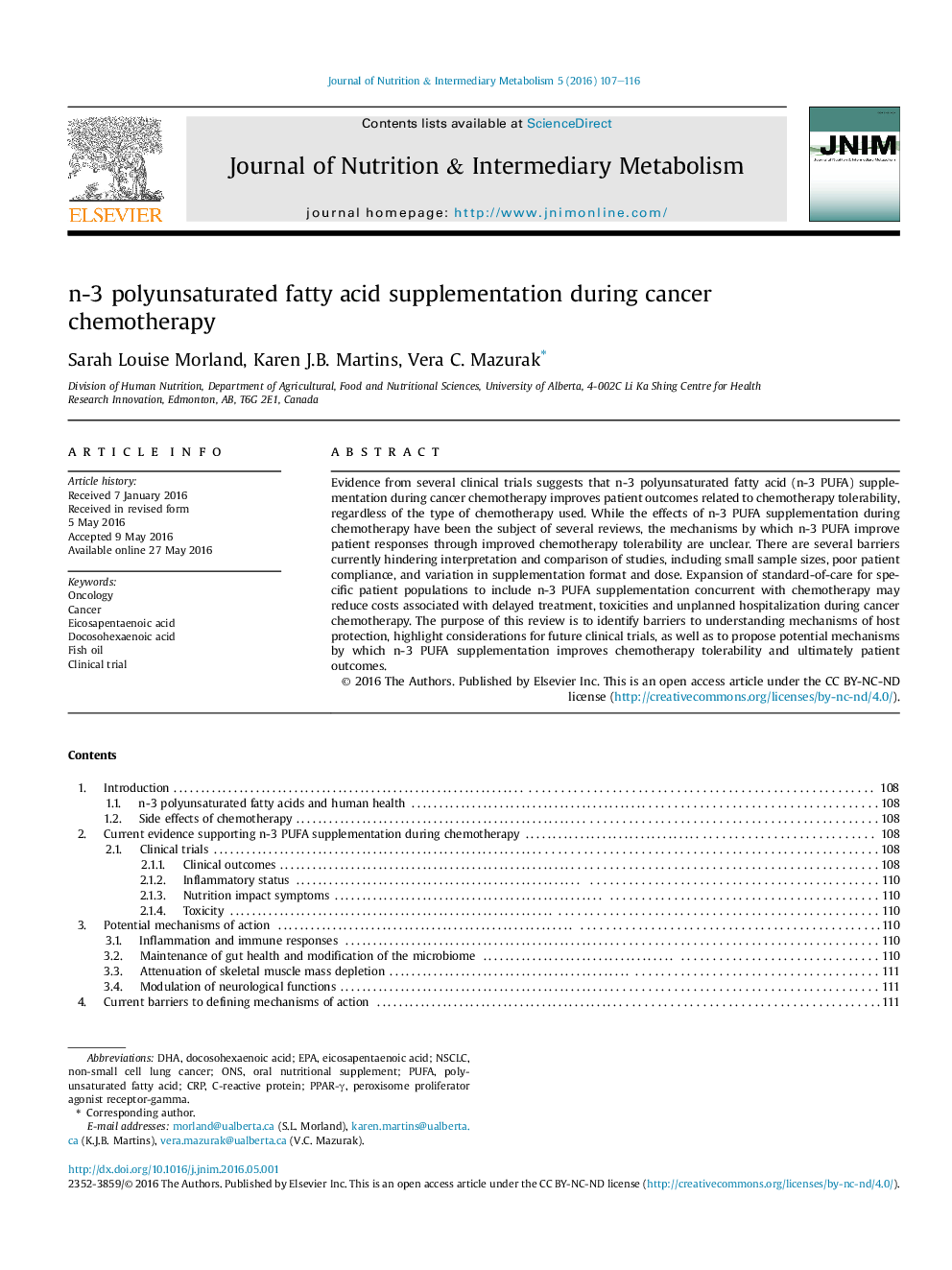| Article ID | Journal | Published Year | Pages | File Type |
|---|---|---|---|---|
| 2688639 | Journal of Nutrition & Intermediary Metabolism | 2016 | 10 Pages |
•N-3 PUFA supplementation improves chemotherapy tolerability and patient outcomes.•Clear mechanisms of action in humans remain to be demonstrated.•Future clinical trials should be standardized to enable better outcome comparisons.•Health care costs may be reduced with n-3 PUFA supplementation during chemotherapy.
Evidence from several clinical trials suggests that n-3 polyunsaturated fatty acid (n-3 PUFA) supplementation during cancer chemotherapy improves patient outcomes related to chemotherapy tolerability, regardless of the type of chemotherapy used. While the effects of n-3 PUFA supplementation during chemotherapy have been the subject of several reviews, the mechanisms by which n-3 PUFA improve patient responses through improved chemotherapy tolerability are unclear. There are several barriers currently hindering interpretation and comparison of studies, including small sample sizes, poor patient compliance, and variation in supplementation format and dose. Expansion of standard-of-care for specific patient populations to include n-3 PUFA supplementation concurrent with chemotherapy may reduce costs associated with delayed treatment, toxicities and unplanned hospitalization during cancer chemotherapy. The purpose of this review is to identify barriers to understanding mechanisms of host protection, highlight considerations for future clinical trials, as well as to propose potential mechanisms by which n-3 PUFA supplementation improves chemotherapy tolerability and ultimately patient outcomes.
